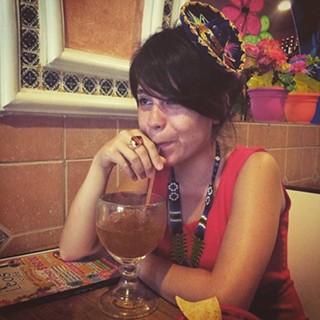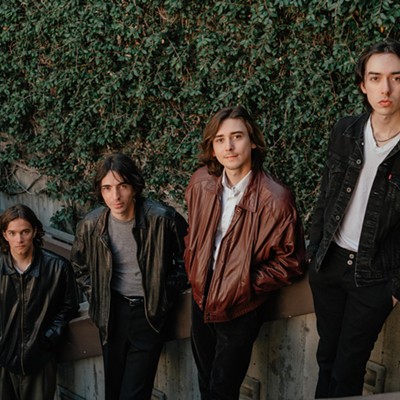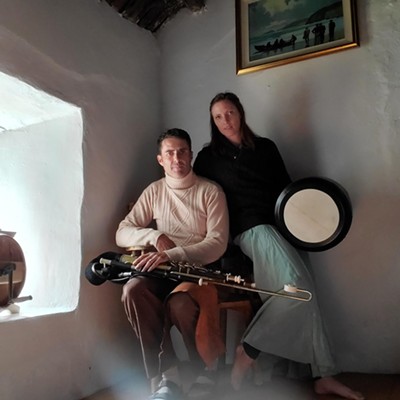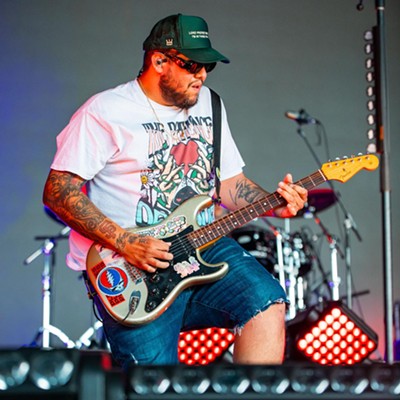Longtime mariachi musician and admirer Jesús "Chuy" Guzmán is afraid commercialism will end up killing the beautiful traditions of his Mexican heritage.
The appreciation for jewels like mariachi, a centuries-old style that's so distinctive of the region, is waning. Much younger genres, such as narco corridos—songs that glorify the so-called luxurious and violent lifestyles of drug cartel members—are creeping up to the spotlight of corporations on both sides of the borderlands that hope to squeeze out every dollar and peso in profits. For Guzmán, who grew up with mariachi in his heart, lungs and veins and who's mastered the genre's many instruments, including the trumpet, vihuela, guitarrón, guitar, and violin, it's melancholic to realize that most radio stations refuse to play mariachi.
"Not that we don't welcome some aspects of commercialism. It's won popularity with the youth...little by little we have been losing our roots. Society has been letting itself go," says Guzmán, musical director of Mariachi Los Camperos De Nati Cano. The group won a Grammy for Best Regional Mexican Album for 2008's Amor, Dolor y Lágrimas and were inducted into the Tucson Mariachi Hall of Fame in 2015.
For the nearly three decades he's been involved with L.A.-based Los Camperos, a group that was born in Mexicali, Baja California more than 50 years ago (though the group used to perform under a different name), Guzmán has done his part to solidify the significance of mariachi.
When he's not on stage, Guzmán teaches all-things mariachi at the University of California Los Angeles' Department of Ethnomusicology. He knows the key role education has in fueling pride and interest for our heritage, especially for those who live or were born in foreign lands. He turns to many classrooms in Tucson, a place very close to his heart (Guzmán and Los Camperos recorded with the Old Pueblo's very own Linda Ronstadt on her album Canciones de Mi Padre, Songs of My Father), where groups he deeply admires, such as Mariachi Aztlán de Pueblo High School and Mariachi Aguilitas de Davis Middle School, were born.
"Our music has an enormous richness that we have been trying to rescue," he says in Spanish from a phone call in L.A. "The importance of educating our people, people who have been forgetting their roots. Mariachi in schools is one way our music has been lifted up."
His advocacy only got stronger after the death of his long-time friend and founder of Los Camperos, Natividad "Nati" Cano more than one year ago. The mariachi legend was mourned around the world. This is the second round of holidays without Cano, and Guzmán, as well as the rest of Los Camperos, is feeling the weight of the loss.
These days, Guzmán reflects on Cano's humble origins in a small village in the state of Jalisco, Mexico, and his death as a mariachi king and pioneer, both in his native land and adoptive soil. He was a man who lived through the Civil Rights era, proudly wearing his heritage on his sleeve during a time when being of a non-Anglo background was an even bigger target than it is today.
Guzmán is willing to do what it takes to keep that going.
"At every concert, we try to bring magic," he says. "We miss Nati very much. His presence will only get stronger on stage—the figure that he always was, even though he's not physically present anymore. His legacy remains with Los Camperos."








